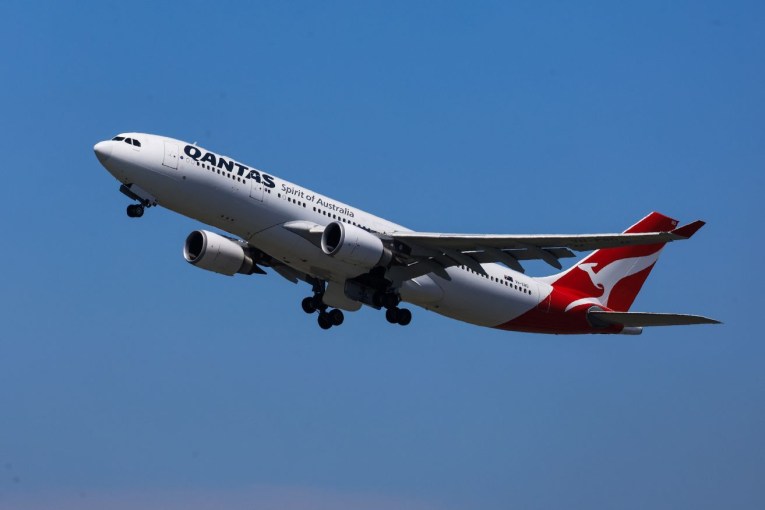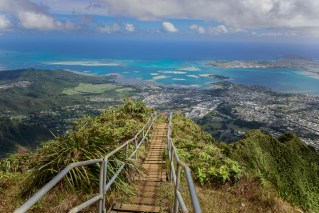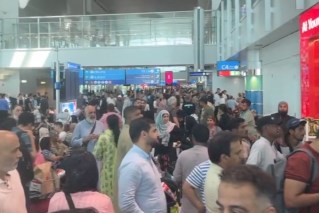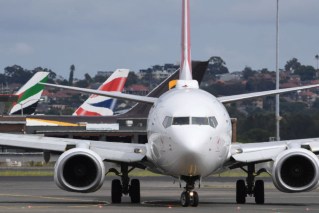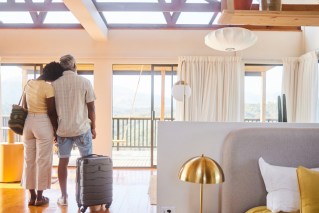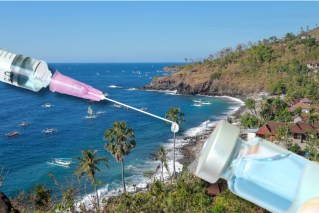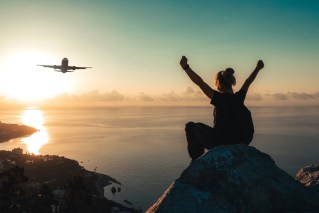Face masks, but no social distancing: Are Qantas’ coronavirus measures good enough?

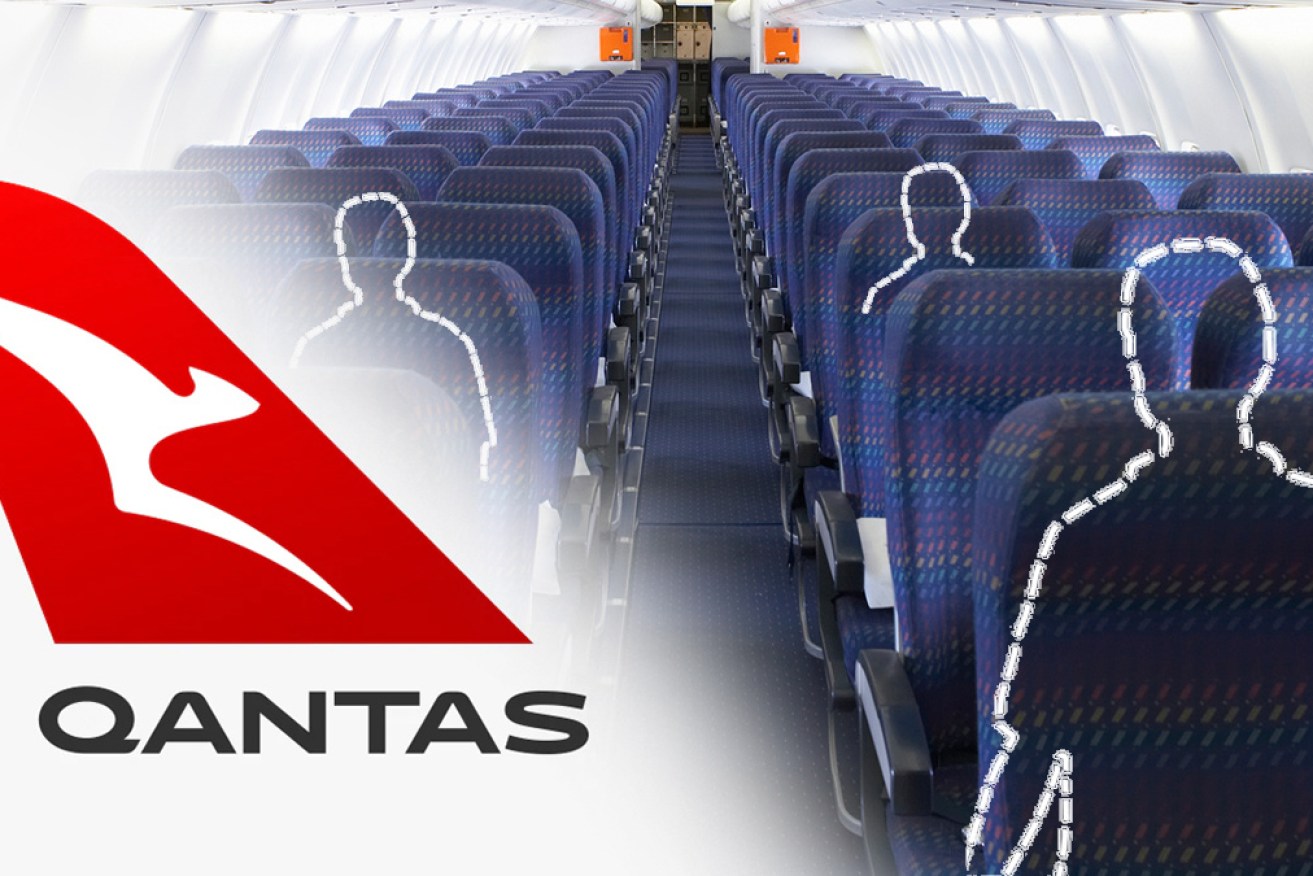
Qantas has announced enhanced hygiene measures, but will not reduce flight capacity to allow for social distancing. Photo: Getty/TND
There are concerns that the raft of coronavirus-era hygiene and safety measures announced by Qantas may not be enough to satisfy travellers and flight staff.
Qantas chief executive Alan Joyce on Tuesday revealed the company was preparing for the resumption of domestic travel within the next few months as restrictions ease.
The national carrier and its budget offshoot, Jetstar, are preparing to roll out new hygiene and distancing measures at airports and onboard from June 12, including hand sanitiser and optional face masks for passengers, but not social distancing on flights.
“There is a possibility that we might have nearly all the states opening up as early as July and we’re planning for that,” Mr Joyce said.
“We have the ability to put a large amount of our capacity back into the air dependent on plans, and we’re giving people certainty about what the process would look like and the health and wellbeing that we’re putting in place.”
And while the airline’s plans include the provision of face masks for all passengers, they may choose not to wear one.

Qantas has announced new hygiene protocols, but face masks will not be mandatory for passengers. Image: Qantas
There will also be enhanced aircraft cleaning, hand sanitising stations at departure gates, and sequenced boarding and disembarkation to avoid crowding.
Service and catering will be simplified to minimise contact between passengers and crew, and passengers will be asked to limit their movement around the cabin once seated.
Qantas medical director Ian Hosegood said social distancing wasn’t practical on an aircraft and unnecessary given the low on-board transmission risk.
“The extra measures we’re putting in place will reduce the risk even further,” Dr Hosegood said in a statement on Tuesday.
The Transport Workers’ Union slammed Qantas’ plan as “troubling” and “not good enough”, calling on the federal government to implement a national plan to lower the risk of infection and spread of COVID-19 in aviation.
At least 60 workers across the Qantas Group have tested positive to coronavirus, and hundreds forced to quarantine.
We need a national plan to keep crew and passengers safe and this plan should done in consultation with the aviation workers who are at the coalface,” TWU national secretary Michael Kaine said.
“It is not good enough for Qantas to come up with its own plan for how it will resume flying, since the airline has proved itself to have downplayed the risks of this virus right from the start.
“Other at-risk workplaces are being strictly regulated and airlines should be no different.”
Mr Kaine described Qantas’ proposed hygiene measures as “troubling”.
“Qantas talks about providing ‘peace of mind’ and ‘wellbeing’ when the focus should not be on making people feel good but on taking the virus seriously and stopping the spread of infection,” he said.
“Workers want to be consulted on issues such as making masks for passengers mandatory, how that can be enforced and whether the middle seat should be kept free.
“Contrary to government guidelines on consulting with workers on COVID-19 plans, Qantas has failed to discuss changes with workers which will not only impact on passenger safety but their safety too.”
Coronavirus fears see airlines ‘scrambling’ to sell seats
“Airlines are really scrambling around the world at the moment to try and encourage people to book tickets and to start flying again,” Monash University aviation expert Greg Bamber told The New Daily.
People are not rushing to book tickets at the moment, because there are concerns about the possibility of catching COVID-19 on an aeroplane, or on a tram or a train or a bus, or at a supermarket for that matter.’’
The aviation industry is responding to these fears by “coming up with ways of trying to reassure people” by spruiking hospital-grade air filtration systems in planes, enhanced hygiene practices for passengers and crew, minimising movement onboard, and simplifying in-flight food and beverage services.
However, when it comes to social distancing on aeroplanes, which could be achieved by reducing capacity, not everyone is onboard.

Qantas is not on board with booking less seats for the sake of social distancing. Photo: Getty/TND
Airlines are responding to the pandemic in different ways around the world, with some choosing to reduce plane capacity by not booking the middle seat in each row to achieve social distancing.
However, “social distancing is not very practical on an aeroplane”, Professor Bamber said, and cutting seat numbers to create more space between passengers is a costly choice that many airlines have chosen to eschew.
“Personally, if I were booking to fly again, which I’m hoping to do soon, I would feel safer if I wasn’t very close to someone else in the middle seat and there was a bit more social distancing,” Professor Bamber said.
Whether or not the cost of flying will rise after the coronavirus crisis remains to be seen.
There seem to be some pressures to keep the price of fares low because people are very reluctant to be booking flights at the moment,” Professor Bamber said.
Airlines are already offering “really good deals” as “an incentive to get people back in the air again,” he said.
On the other hand, the airlines are haemorrhaging money.
“We’ve seen bankruptcies around the world, including here with Virgin Australia going into administration.
“And similarly around the world, nearly every airline would be bankrupt very soon if it wasn’t for some sort of government support or assistance being provided.”
The outlook for air travel in Australia will be grim if Virgin Australia collapses, or is purchased by investors looking to “flip” the company rather than commit to its long-term future, Professor Bamber warned.
- Related: From ‘immunity passports’ to a trans-Tasman bubble, coronavirus will change the way we travel
The loss of Virgin could see Australians forced to pay much more for air fares, as Qantas would become a monopoly provider, he said.
“Monopolies cannot resist the temptation to jack up their prices when customers don’t really have any viable competition,” Professor Bamber said.
Government calls for domestic borders to reopen
Qantas’ move to reassure passengers came as the Morrison government called for states and territories to reopen borders sooner than planned.
Federal Tourism Minister Simon Birmingham said public health was crucial, but that the economy needed kick-starting.
“We need people moving across this country again when it’s safe to do so,” Mr Birmingham said on Tuesday.
Tourism employs one in 13 Australians, and has been one of the hardest-hit sectors as governments act to contain the spread of COVID-19.
States and territories “ought to be looking at opening up their borders”, Mr Birmingham stressed, later adding that there was no reason why state borders couldn’t reopen well before September if Australia continued to see success in containing the virus
However, Queensland has flagged border closures with southern states could remain until at least September due to the pandemic, prompting despair from tourism groups, while WA and SA are also signalling borders will remain shut until the end of winter.
Tasmanian Premier Peter Gutwein said on Tuesday that it was “far too early” to set a date.
–with AAP
